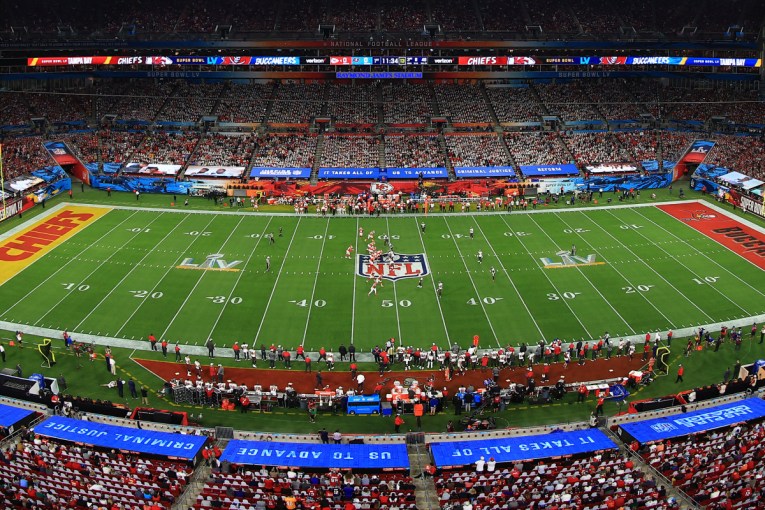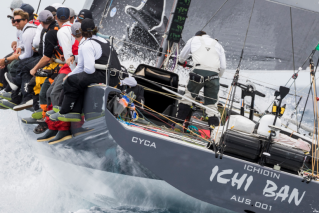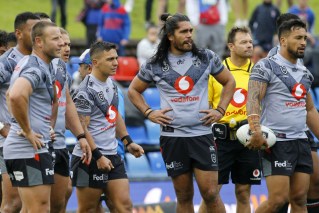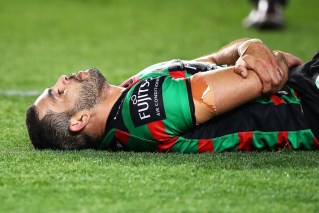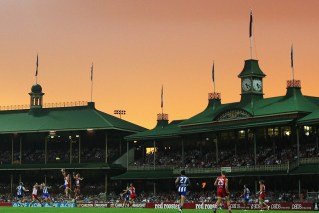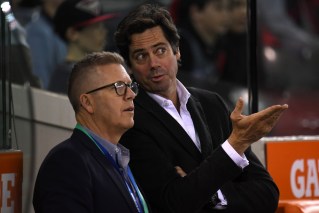Drugs and money: Sport has boils to Lance

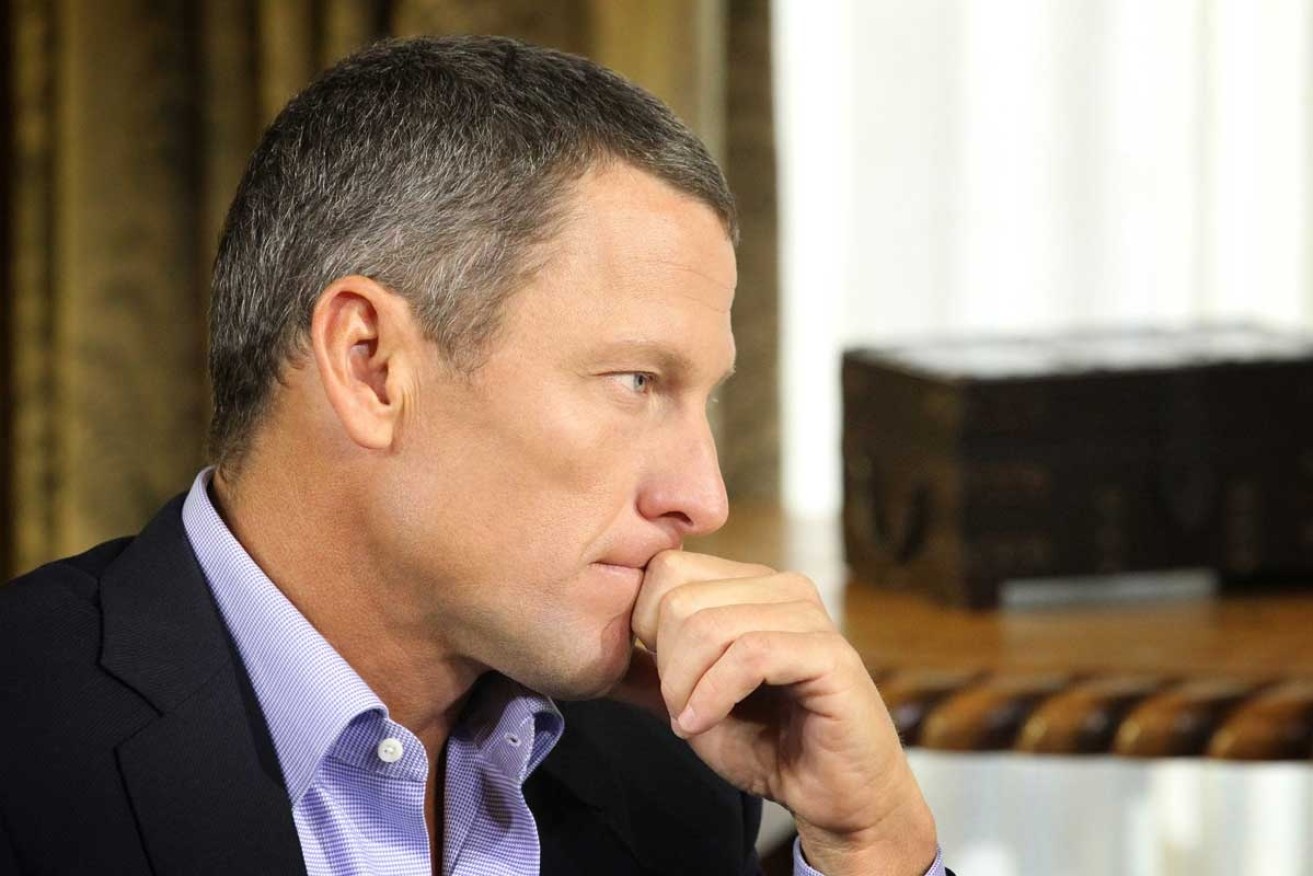
Getty
Lance’s legacy
Did you catch the recent Lance Armstrong documentary on the ABC? Nice guy, isn’t he? ‘His “which part of ‘I don’t know’ do you not understand”, delivered under oath, was particularly endearing. It was the sheer intensity of him that shone through. Those unblinking eyes. And the sense of a man at the top of his game when it comes to subterfuge. As a wise man once said…
The post-Armstrong landscape is a cynical one. While Lance twiddles his thumbs in Texas, any cyclist who turns in a freak performance is obliged to prove a negative. Last year, when Chris Froome unleashed some of the most extraordinary solo efforts ever seen, they came for him. The French TV anchor Gerald Holtz shoved the snout of a microphone in his face and asked, ‘Can you look me in the eyes, Chris Froome, and tell me you are clean?’ Nearly every subsequent question the Englishman fielded pertained to doping.

Lance Armstrong: Cycling’s Keyser Soze. Photo: Getty
We are right to be cynical but we may well end up being wrong about Froome. With Armstrong, everything pointed to something rotten. All around him, there were cars packed with syringes, mass arrests at the border, whistle-blowers ostracised from the peloton, disgruntled former employees fingering him and ostensibly fit young men dropping dead in their 30s. Right now, there is none of that.
• Sport, drugs and gangsters: Why we need WADA
• Cricket’s latest Don pulling the match-fixing strings
What’s more, the UCI finally has a skerrick of credibility about it. The bio passport, the ADAMS database and the no needle policy have all heralded significant change. When it comes to performance enhancing drugs, cyclists are the most tested and scrutinised of all sportspeople, as they ought to be.
So far, the peloton has travelled through towns that encapsulated the worst of the 20th Century – Ypres, Verdun and Arras. Running with a truly dire segue, whoever takes control of the Tour will be under fire on multiple fronts. Theirs will be a very modern sporting dilemma. Do they seek to win by going as slowly as possible? Or do they drop their shoulders, up the cadence and brace themselves for the inevitable opprobrium?
On the punt
At first, the news that a number of Rugby League players had been sanctioned for irregular betting seemed like the ultimate example of the NRL and AFL’s pettifogging ways. Planetary realignment, after all, is unlikely to occur because of a few piddling $5 bets.
Shane Warne’s dalliance with John the Indian Bookmaker seems almost quaint now.
But our major sports are terrified of a betting scandal and with good reason. Senior police believe our stars are ‘groomed’ by shadowy figures. Match fixers, the police stress, often cultivate friendships over many years, to the point where they know all the players’ secrets and vulnerabilities. Associating with criminals, cavorting with strippers and snorting cocaine in nightclubs make footballers a target for gambling cartels, they believe.
It’s why, say, when a sergeant-at-arms of a bikie gang is shaking hands in the Richmond change-rooms or a wayward young star makes the handcuff sign in front of 94,000 people at the MCG, the Powers That Be get twitchy.
Shane Warne’s dalliance with John the Indian Bookmaker seems almost quaint now. Universal broadband, smart-phones and an explosion in global gambling have completely changed the ballgame. In the time it took you to read that last paragraph, you could have unloaded your pay on a Romanian handball game.

David Williams has been suspended for the rest of the NRL season. Photo: Getty
Though the checks and balances of our national sports are strong compared to most countries, there are concerning trends. Last summer, lurk-merchants with laptops – accused of transmitting play data ahead of the broadcast using a device stitched into their pants – were escorted from both Etihad Stadium and Melbourne Park. In the same period, Betfair punters wagered nearly $625 million on the Big Bash competition. With a straight face, a Betfair spokesman said it reflected the ‘evenness and intrigue of every contest’.
There will always be sportspeople who are malleable – the grizzled veteran desperate to put his kids through private school, the young star dabbling in party drugs, the semi amateur side who’d rather spend their end of season trip in Ibiza than Inverloch. Remember the merry band of traveling drunks from the Southern Stars? A case like that, on a much larger scale, represents the NRL and AFL’s worst nightmare. Having said that, given their beefed up integrity departments, any player who has a serious crack at fixing a match would have to be the most dim-witted, hard-up sportsmen going around. Either that or he’ll be the smartest man in Australia.
Send in the clowns
“If you want entertainment, go and watch clowns.” So said the former English football manager Alan Durban, not exactly a man known for cultivating teams that quickened the collective pulse.
The Germans, contrary to everything we are brought up to believe, are playing sumptuous, attacking football.
The entertainment v efficiency dilemma is one that every sports fan wrestles with. Would you rather a groaning trophy cabinet or an aesthetically pleasing style of play? These days, is it possible to have both?
The World Cup brings this into sharp focus. In the 1970s, the Dutch had a mortgage on attractive football. Their teams pressed forward at all times. They did things like this… It was a great rolling wave of orange, a surging sea of sideburns. It was Total Football. But it didn’t equate to major championship victories.
More recently however, they have eschewed the beautiful game in favour of more belligerent tactics. On Thursday, a stolid, stifling, back-footed approach proved to be their undoing. “Why can’t you be more like the Germans!” we cried, checking ourselves in the process.
Any team that wins 7-1, of course, is an exemplar of what we love about sport. But still…Germany? It feels like the world has gone topsy-turvey. Here’s a few words and phrases we usually associate with German football – short-back-and-sided, clinical, ruthless, almost architectural in the way they play. But the current German version is decidedly more imaginative that the stereotypes would suggest. The Germans, contrary to everything we are brought up to believe, are playing sumptuous, attacking football. What next, the Fremantle Dockers go out and kick 45 goals on Grand Final day? These truly are peculiar sporting times.
Friday read
“When Roger Federer steps onto Centre Court for a Wimbledon men’s final, he has an aura he has earned but seems born with, a grace and superiority that seems a birthright. On Sunday, he seemed a throwback in so many ways. During the first set, he struck the ball with implacable grace. He skimmed the grass as he moved toward the net. He was patiently aggressive as he opened up the court. He had the regal air of a man who represents more than only himself, of a man at once standing on the court and sitting in the royal box.” Read more…
